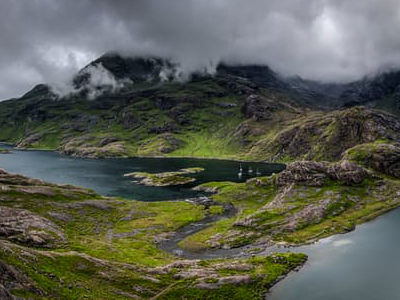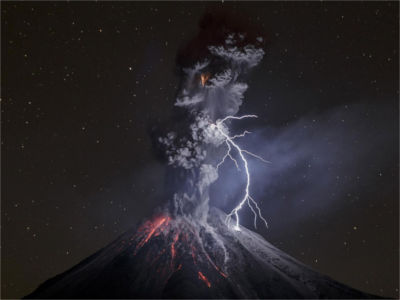The Northlands: Difference between revisions
From Breaking Worlds
Created page |
m →Reynes |
||
| (3 intermediate revisions by the same user not shown) | |||
| Line 1: | Line 1: | ||
{{Categories|Geography}} | |||
The northernmost part of [[Arginet]] is cold and windswept. Rugged hills and damp pine forests characterise the land between the mountains and the sea. | The northernmost part of [[Arginet]] is cold and windswept. Rugged hills and damp pine forests characterise the land between the mountains and the sea. | ||
Northerners tend to see themselves as somewhat apart from other Arginese. Many families claim to have inhabited the island since even before the time of [[King Estienne]], a claim considered absurd or even blasphemous by some southerners. Certainly the rule of Kellewick was not always welcome here; in the second century, both noble and commoner rose up against the weak King Enguerrand I in a revolt that was not ended for two years. | |||
Time and the slow mixing of peoples have changed things, and for centuries now the Northlands have been as loyal as any other part of the realm. Nonetheless, some cultural peculiarities remain. Northerners place great stock in hospitality and treat guests with the highest honour - a tradition that sometimes even overrides the distinctions of [[social class]]. Their arts and crafts are also noted for the rich variety of patterns they incorporate in cloth, embroidery, and metalwork. | |||
[[File:Northlands.jpg|frame]] | |||
== Notable features == | == Notable features == | ||
=== Reynes === | === Reynes === | ||
Reynes is the northernmost city in the realm and one of the most strongly defended. Bandits, wolves, and worse roam the forests and mountains inland, but the walls and towers of the city keep its inhabitants safe in their homes. | |||
Plentiful timber and ore from the hinterland feed such a multitude of forges and smithies that the city is often shrouded in a pall of smoke. The smiths of Reynes are said to be the finest in Arginet, and on par with the best [[Na Rathanna|Rathanna]] artisans - and the witches there are acknowledged masters of binding spirits into all manner of anchors, from axes to amulets. | |||
=== Carden Law === | === Carden Law === | ||
Carden Law stands at the point where the Great East Road becomes the Great North Road. It is the northernmost town in Arginet and the most forbidding, whipped by winds from the Ocean Sea and the chill north. Its people consider themselves tough even for Northerners and have a reputation for relishing physical challenge. | |||
=== Chapel Moss === | === Chapel Moss === | ||
The town of Chapel Moss is surrounded by a dense and dark forest. The finest timber in the realm is felled here, dragged overland or floated down the slow-flowing Mosswater. But fierce beasts lurk in the woods and marshes, and since [[the Breaking]], their numbers have been swelled by new and alien creatures that prey upon the unwary. | |||
[[File:Heart_of_Fire.jpg|frame]] | |||
=== The Heart of Fire === | === The Heart of Fire === | ||
Among the craggy mountains of the Northlands one peak stands out from the others by day or night: the Heart of Fire. A lake of molten rock surrounded by strange formations of basalt bubbles and smokes at the summit; occasionally it bursts forth in a powerful eruption that symbolises the unpredictability of [[Fire]]. The lower flanks and slopes host shrines to the [[spirits]], each one built as an architectural marvel despite the knowledge that eventually the volcano will consume them. | |||
Latest revision as of 20:28, 8 February 2018
The northernmost part of Arginet is cold and windswept. Rugged hills and damp pine forests characterise the land between the mountains and the sea.
Northerners tend to see themselves as somewhat apart from other Arginese. Many families claim to have inhabited the island since even before the time of King Estienne, a claim considered absurd or even blasphemous by some southerners. Certainly the rule of Kellewick was not always welcome here; in the second century, both noble and commoner rose up against the weak King Enguerrand I in a revolt that was not ended for two years.
Time and the slow mixing of peoples have changed things, and for centuries now the Northlands have been as loyal as any other part of the realm. Nonetheless, some cultural peculiarities remain. Northerners place great stock in hospitality and treat guests with the highest honour - a tradition that sometimes even overrides the distinctions of social class. Their arts and crafts are also noted for the rich variety of patterns they incorporate in cloth, embroidery, and metalwork.

Notable features
Reynes
Reynes is the northernmost city in the realm and one of the most strongly defended. Bandits, wolves, and worse roam the forests and mountains inland, but the walls and towers of the city keep its inhabitants safe in their homes.
Plentiful timber and ore from the hinterland feed such a multitude of forges and smithies that the city is often shrouded in a pall of smoke. The smiths of Reynes are said to be the finest in Arginet, and on par with the best Rathanna artisans - and the witches there are acknowledged masters of binding spirits into all manner of anchors, from axes to amulets.
Carden Law
Carden Law stands at the point where the Great East Road becomes the Great North Road. It is the northernmost town in Arginet and the most forbidding, whipped by winds from the Ocean Sea and the chill north. Its people consider themselves tough even for Northerners and have a reputation for relishing physical challenge.
Chapel Moss
The town of Chapel Moss is surrounded by a dense and dark forest. The finest timber in the realm is felled here, dragged overland or floated down the slow-flowing Mosswater. But fierce beasts lurk in the woods and marshes, and since the Breaking, their numbers have been swelled by new and alien creatures that prey upon the unwary.

The Heart of Fire
Among the craggy mountains of the Northlands one peak stands out from the others by day or night: the Heart of Fire. A lake of molten rock surrounded by strange formations of basalt bubbles and smokes at the summit; occasionally it bursts forth in a powerful eruption that symbolises the unpredictability of Fire. The lower flanks and slopes host shrines to the spirits, each one built as an architectural marvel despite the knowledge that eventually the volcano will consume them.